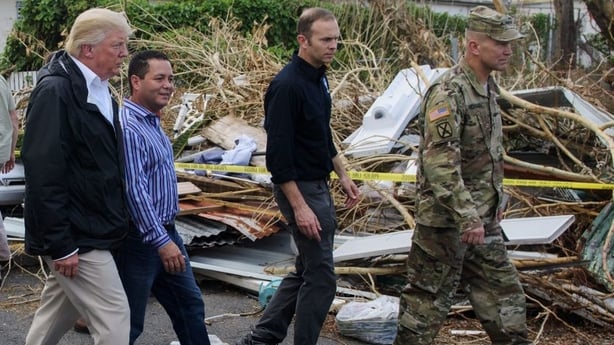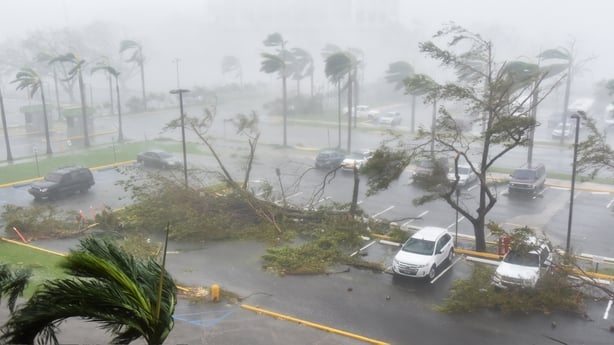Puerto Rico's official death toll from Hurricane Maria has been raised from 64 to nearly 3,000.
The new figure is based on a study ordered by the governor of the US territory after the original number was widely discounted as being far too low.
Maria was the most powerful storm to hit the Caribbean island in almost a century, causing widespread death and destruction.
The report found that an estimated 2,975 deaths could be attributed directly or indirectly to Maria from the time it struck in September 2017 to mid-February of this year.
By comparison, deaths blamed on Hurricane Katrina in 2005 range from about 1,200 to more than 1,800, most along the Gulf Coast of Louisiana and Mississippi.
The latest Puerto Rico figure was derived from comparisons between predicted mortality under normal circumstances and deaths documented after the storm, a number that turned out to be 22% higher.
Researchers said they adjusted for various factors that could account for fluctuations in mortality, most notably the displacement of some 241,000 residents who fled the island in the immediate aftermath of the storm.
They also found that the poor and elderly were disproportionately hard hit in terms of risk of fatalities.

The emergency response to Maria became highly politicised as the Trump administration was castigated as being slow to recognise the gravity of the devastation and too sluggish in providing disaster relief to Puerto Rico, an island of more than three million residents.
The storm made landfall with winds close to 240km/h on 17 September and ploughed a path of destruction across the island, causing property damage estimated at $90bn and leaving much of the island without electricity for months.
It was the third major hurricane to hit the United States with lethal force in less than a month last year, following Harvey in Texas and Irma in the Caribbean and Florida.
The disconnect between the administration's initial assessment of the situation and the enormity of the disaster was evident 12 days into the crisis when Elaine Duke, then acting US homeland security secretary, characterised the federal response as "a really good news story" and spoke of a "limited number of deaths."
In a scathing reaction, San Juan Mayor Carmen Yulin Cruz said: "Damn it, this is not a good news story. This is a people-are-dying story. This is a life-or-death story."

In early October 2017, Mr Trump expressed satisfaction with the federal response to Maria, saying it compared favorably with a "real catastrophe like Katrina."
The storm's death toll has remained controversial as unofficial inquiries and independent research suggested the loss of life was far higher than 64 people.
This study, conducted by George Washington University's Milken Institute School of Public Health, was billed as the most comprehensive yet.
White House press secretary Sarah Sanders said the administration supported "efforts to ensure a full accountability and transparency of fatalities" from the hurricane.

